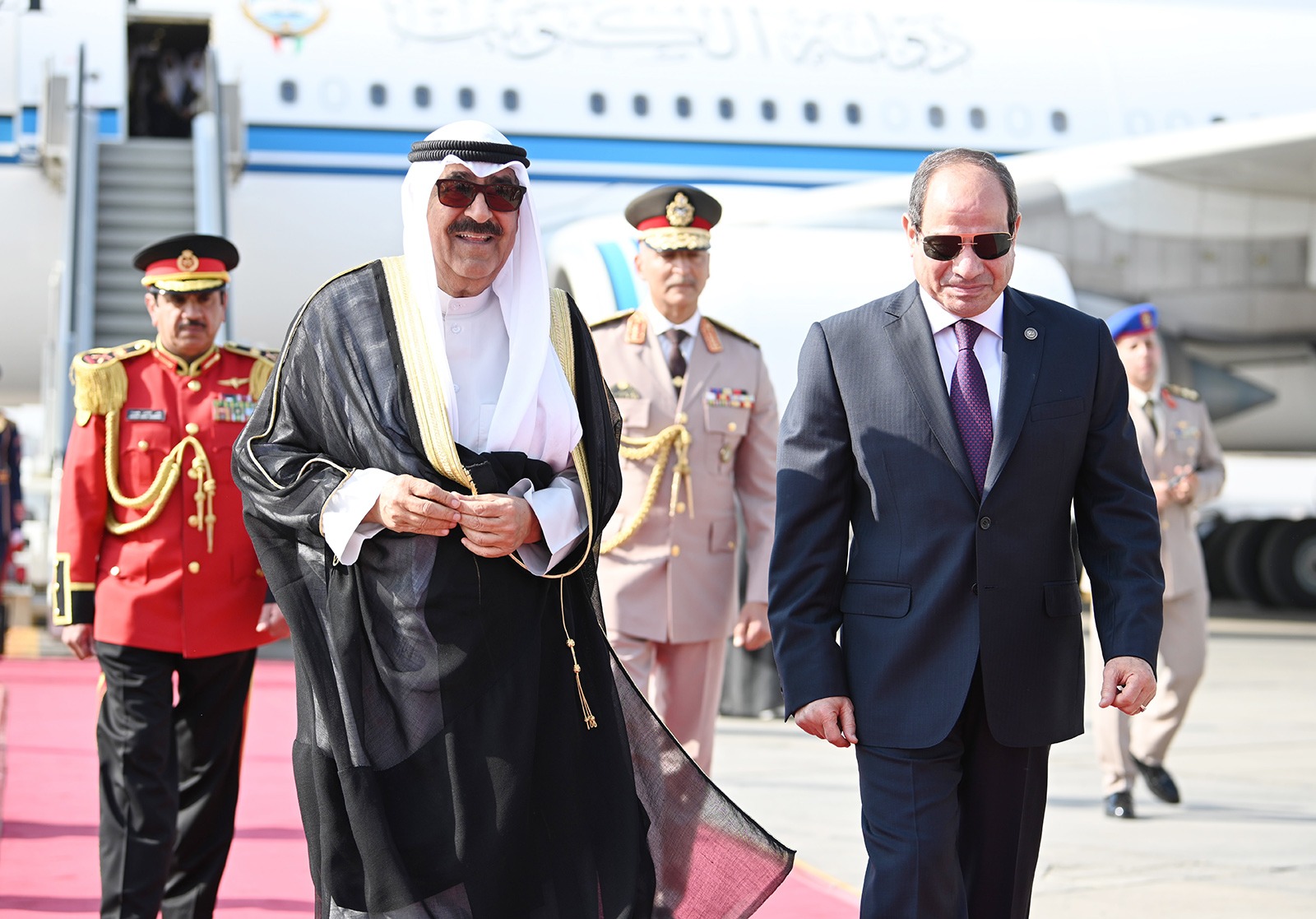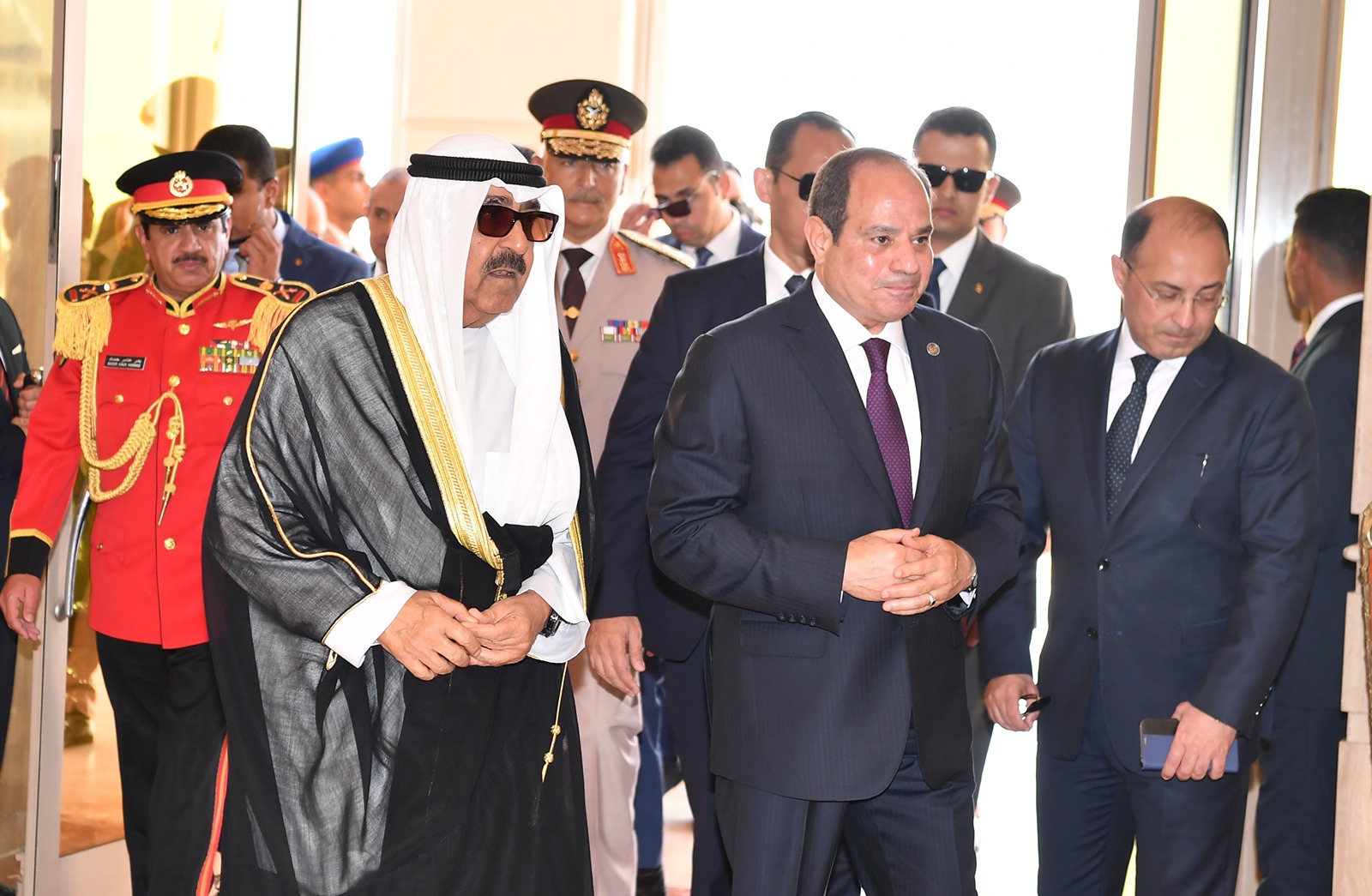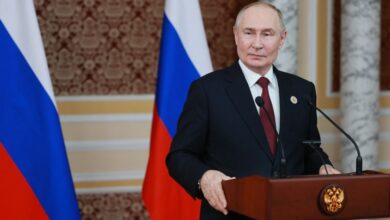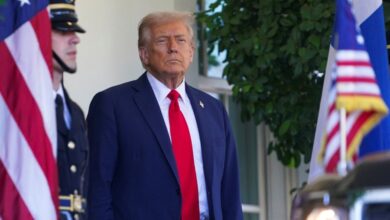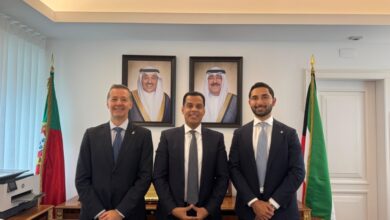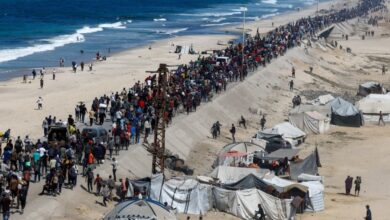Kuwait, Egypt pledge strong ties, solidarity on regional issues during H.H the Amir’s visit
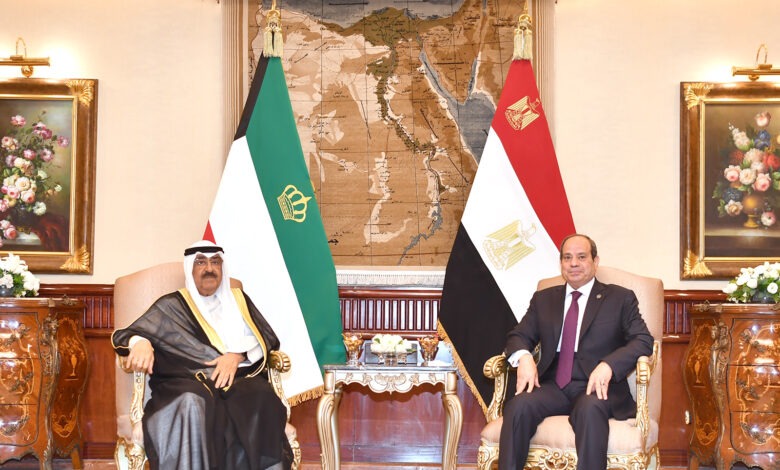
Following a state visit by His Highness the Amir Sheikh Meshaal Al-Ahmad Al-Jaber Al-Sabah to Egypt on April 30th, 2024, a joint statement highlighted the deep and enduring relationship between the two nations. H.H the Amir’s visit, his first official visit to Egypt since assuming his position, was reciprocated with warm hospitality His Excellency President Abdel Fattah Al-Sisi.
Strengthening bilateral relations and cooperation
The statement emphasized the depth and strength of close bilateral relations between Kuwait and Egypt at various official and popular levels. The leaders commended the full solidarity demonstrated by both countries throughout various pivotal moments in their history. Bilateral talks included an expanded session with members of both delegations, reflecting the comprehensive nature of the discussions.
Both sides acknowledged the strong economic ties between Kuwait and Egypt, with the Kuwaiti delegation praising the current progress and steady growth witnessed by economic and trade relations.
They particularly highlighted the pivotal role of Egypt as an investment and commercial partner for Kuwait. The Kuwaiti side commended Egypt’s efforts to improve the investment climate and attract investments, while His Excellency the President expressed appreciation for the care received by the Egyptian community in Kuwait.
The leaders assigned officials from both countries to take the necessary steps to further strengthen trade and investment relations in the coming period. This includes preparations for the thirteenth session of the Joint High Committee in the coming months, which is expected to contribute to advancing joint cooperation efforts.
The statement highlighted the importance of mutual support between the two countries in various international forums, citing the recent support of Kuwait for the nomination of Dr. Khaled Al-Anani for the post of Director-General of UNESCO, as well as Egypt’s support for Kuwait’s candidacy for membership of the United Nations Human Rights Council for the period from 2024-2026.
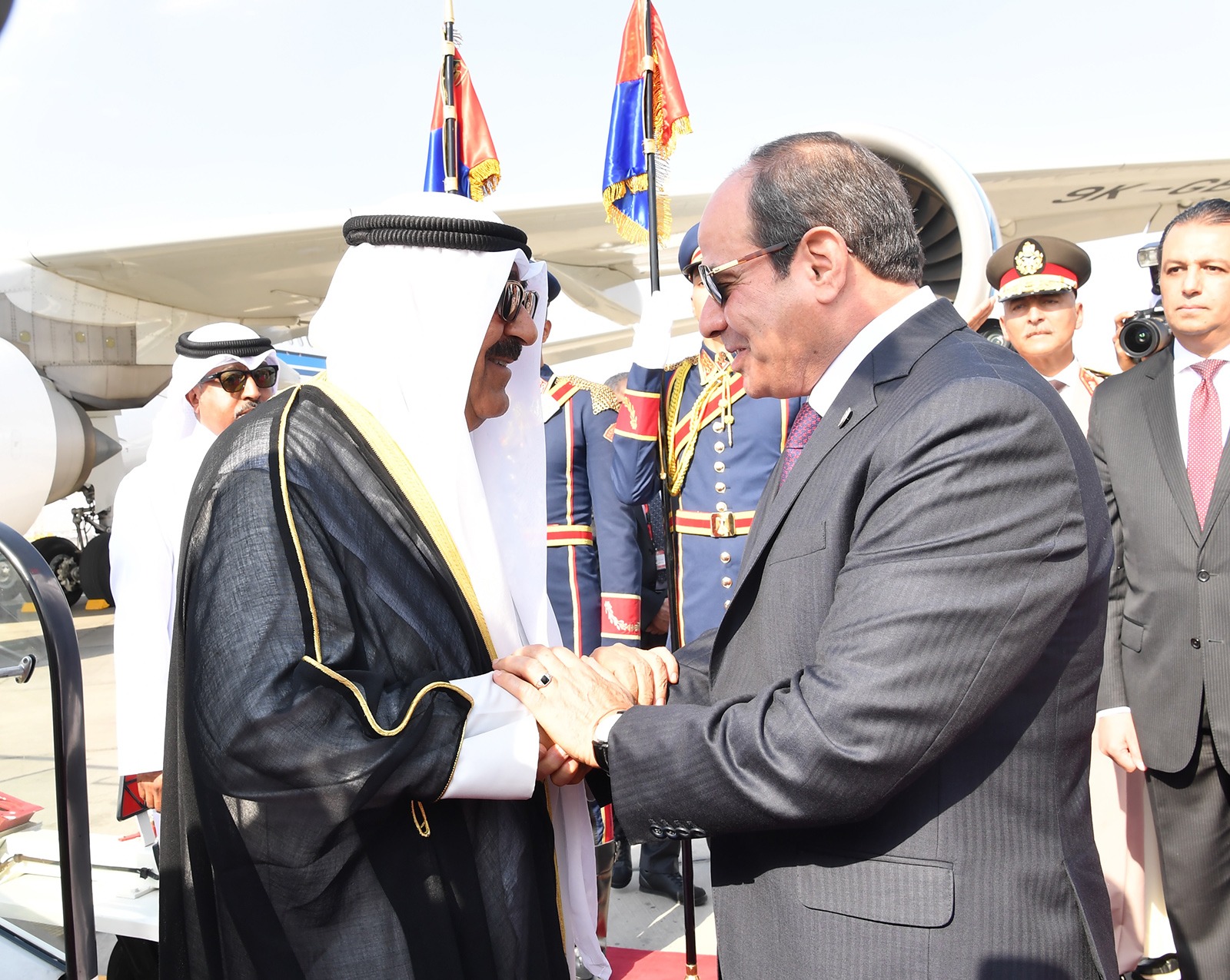
Unity on pressing regional issues
The leaders emphasized the need for a culture of peace, dialogue, and diplomatic settlement of disputes in the Middle East to achieve development and peaceful coexistence among countries. They stressed adherence to the values of tolerance, respect for the sovereignty of states on their territories, and non-interference in their internal affairs.
Israeli-Palestinian Conflict: Both sides condemned Israel’s military operations in Gaza, including the possibility of extending the siege on the city of Rafah, and warned of the serious humanitarian consequences that could result. They called for an immediate and sustainable ceasefire and for facilitating safe, adequate, and sustainable access to humanitarian aid for the Palestinian people in the occupied territory. The statement also emphasized the importance of implementing relevant Security Council resolutions, including resolution 2720, and the establishment of a UN mechanism within the Gaza Strip to facilitate the entry of humanitarian aid.
The leaders strongly rejected attempts to liquidate the Palestinian cause and condemned Israel’s violations of international law and international humanitarian law, as well as all attempts at the forced displacement of Palestinians from their land in Gaza and the West Bank, including East Jerusalem. In this context, they reaffirmed adherence to the right of return of Palestinian refugees and General Assembly resolution 194. The importance of the vital role of the UNRWA Relief and Refugee Works Agency and rejecting deliberate targeting of the Agency and the importance of supporting its budget were also highlighted.
Sudan: The statement stressed the need for an immediate and sustainable ceasefire in Sudan and rejected external interference aimed at supporting any party militarily. It emphasized that any real political solution must be based on a pure Sudanese vision driven by the Sudanese people themselves, without external dictates or pressure.
The leaders stressed the importance of decisions that contribute to resolving the crisis and are based on the unity and sovereignty of Sudan, while preserving its national institutions and preventing their collapse. The statement also highlighted the importance of consulting with regional institutions and organizations, including the Jeddah platform, the mechanism of Sudan’s neighboring countries, the African Union, and the League of Arab States, to preserve the interests and capabilities of the people of Sudan and neighboring countries, as well as security and stability in the region as a whole.
The importance of providing support to Sudan’s neighboring countries, most affected by the crisis and receiving large numbers of Sudanese refugees since the beginning of the conflict, was also emphasized.
Security and stability in the region: Key concerns
The Kuwaiti delegation expressed full support for Egyptian water security and its rights to the Nile waters. Both sides underscored the importance of ensuring the freedom of navigation in regional waterways, adhering to international law and conventions, including the 1982 United Nations Convention on the Law of the Sea.
The statement highlighted the importance of completing the demarcation of the Kuwaiti-Iraqi maritime border beyond the naval mark 162 in accordance with international law, while stressing respect for Kuwait’s sovereignty over its land and sea territory as enshrined in Security Council resolution No. 833 of 1993.
The leaders reaffirmed adherence to the agreement regulating maritime navigation in Khor Abdullah, signed between the two countries in 2012, and the security exchange protocol and map attached to it signed in 2008. They emphasized the importance of ensuring security and safety of navigation in the waterway and preventing any terrorist or criminal cross-border activities.
Finally, the joint statement reiterated that the entire Al-Durra field falls within Kuwaiti maritime territory, and ownership of natural resources in the adjacent submerged area belongs solely to Kuwait and Saudi Arabia based on agreements concluded between the two nations. The statement rejected any claims of rights to this area by any other party.
The visit concluded with President Sisi awarding the Nile necklace to Amir Sheikh Meshaal Al-Sabah, a gesture symbolizing the deep and enduring relations between Kuwait and Egypt.






